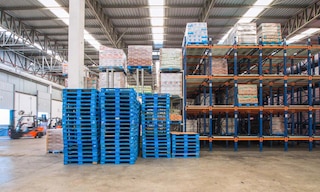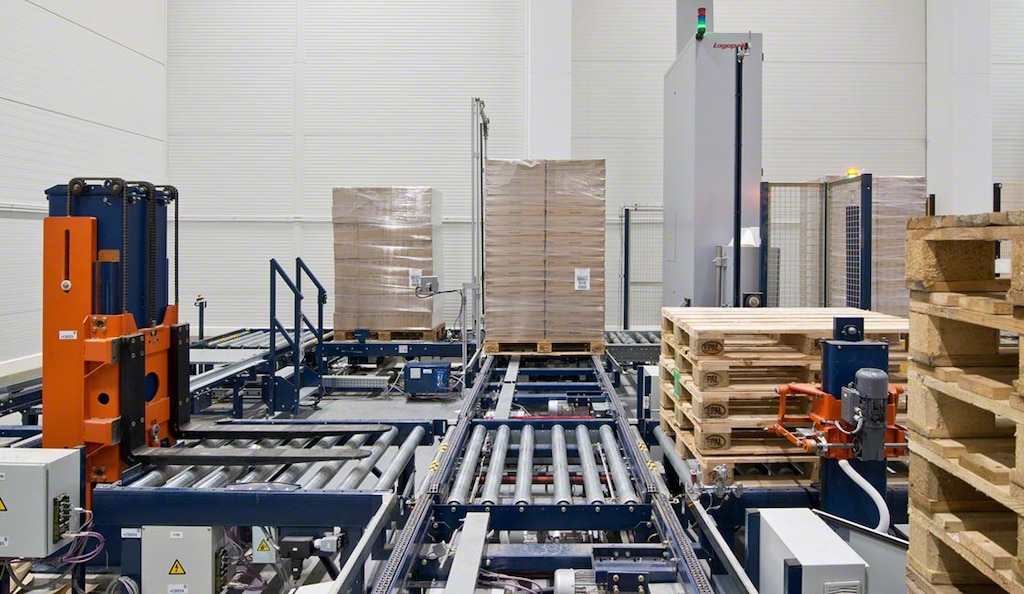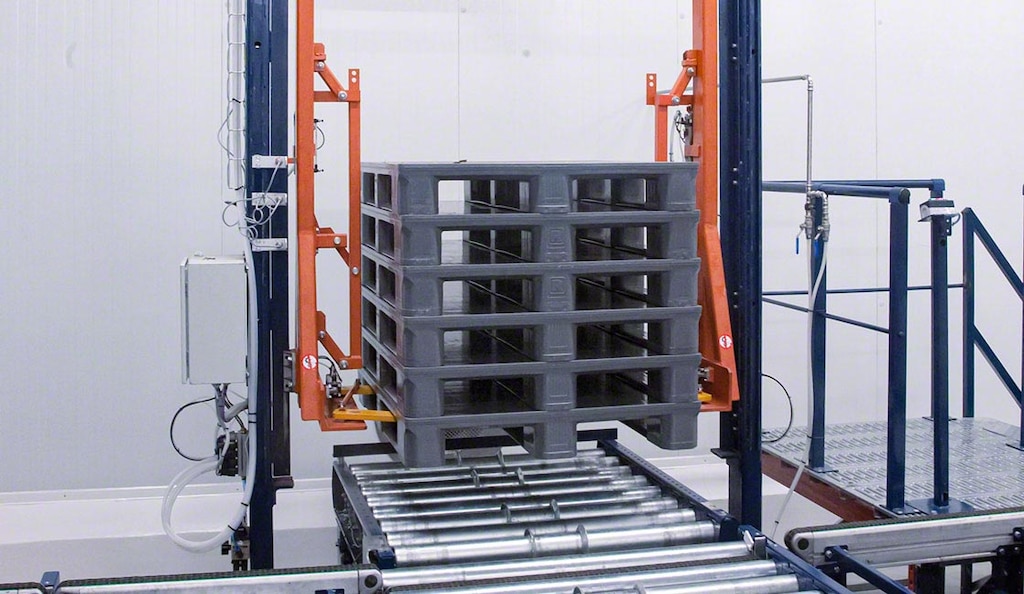
Reusable pallets and their role in the circular economy
Reusable pallets help companies reduce their environmental impact without compromising supply chain efficiency, supporting the shift toward sustainable logistics.
What is a reusable pallet?
Reusable pallets are transportation and storage structures durable enough to be utilized multiple times. Like single-use pallets, they come in standard sizes and are made from various materials. Some of the most widely recognized and standardized models include the GMA (Grocery Manufacturers Association) pallet used across North America and the Euro pallet. Countries like Australia also have their own pallet standards. Designed to withstand repeated use cycles, reusable pallets help cut down on waste in goods flows and lessen the need for disposable models. Additionally, their strength protects products from damage during handling and transportation.
By adopting a pallet pooling system, companies can outsource pallet procurement, inventory, maintenance, and recovery, guaranteeing a steady supply of high-quality units.
Advantages of reusable pallets
Before switching to reusable pallets, it’s important to understand how they differ from one-way alternatives:
- More cost-effective over time. While the upfront cost of purchasing reusable pallets or using a pallet pooling service may be higher, their longer lifespan can lead to significant long-term savings.
- Hygienic. Plastic reusable pallets are easier to clean and sanitize than wooden ones. This makes them ideal for industries with strict hygiene and safety standards, such as food and pharmaceuticals.
- Consistent. Reusable pallets — especially plastic models — maintain uniform dimensions and weight, making them well-suited for automated storage and handling systems. They also lack nails and splinters, which can interfere with machinery.
- Sustainable. By reducing the need for single-use pallets, reusable models help conserve natural resources, preserving the environment. They’re often made from recycled materials and can be given a second life themselves when the time comes through pallet recycling.
- Highly durable. Built for repeated use, reusable pallets withstand multiple logistics cycles. They’re typically made from materials like high-density polyethylene, which resists the elements and can tolerate temperatures as low as -76 °F.

Disadvantages of reusable pallets
Despite their many advantages, reusable pallets also have some drawbacks that should be considered by providers and end users:
- Higher upfront costs. Whether purchased directly or through a pallet pooling service, reusable pallets typically cost more than less durable alternatives — particularly plastic or metal models.
- Reverse logistics. Recovering empty pallets from the supply chain can involve added transportation, storage, and inventory management costs.
- Maintenance requirements. To extend their service life, reusable pallets must be inspected periodically and cleaned on a regular basis.
Types of reusable pallets
Reusable pallets are typically classified into two main material categories:
- Plastic pallets. Resistant to external threats such as moisture and pests, plastic pallets come in a range of designs, including stackable, lightweight, medium-duty, and heavy-duty. Their lifespan is generally longer than that of wooden units, often lasting several years. Plastic pallets also tend to be safer, as they don’t harbor splinters, mold, bacteria, or rusted nails.
- Wooden pallets. While sturdier than single-use models and suitable for reuse, wooden pallets require more maintenance and frequent repairs. They’re also subject to regulations such as NIMF 15, which mandates phytosanitary treatments to prevent pest infestations in international shipments.

Reusable pallets and the circular economy
In industry, sustainability is more critical than ever. By adopting sustainable pallet management practices, companies can reduce their carbon footprint, minimize waste generation, and help conserve natural resources. This is why many businesses are now opting for reusable pallet models to meet their logistics challenges.
For numerous organizations, employing reusable pallets is a way to support the circular economy. This model seeks to keep the value of products, materials, and resources in the economy for as long as possible. Through pallet pooling programs, where a provider supplies these units to clients, users benefit from continuous pallet availability. The provider is the party responsible for collecting, repairing, and reintegrating them into the cycle.
Key benefits of pallet pooling and reusable pallets include:
- Less need for waste management.
- Better use of storage space thanks to regular pallet pickup by the provider.
- Reliable availability of high-quality pallets, even during peak demand.
The eco-friendly edge of reusable pallets
Reusable pallets allow companies to make more efficient use of their resources, fostering greener logistics practices. When durable pallets capable of withstanding multiple cycles are combined with product lifecycle tracking, businesses can further reduce waste and inventory shrinkage.
If you’re looking for storage solutions for your palletized loads, Interlake Mecalux can help. Contact us to see how we can improve your supply chain, cut costs, and strengthen your market position — whether you work with single-use or reusable pallets.
